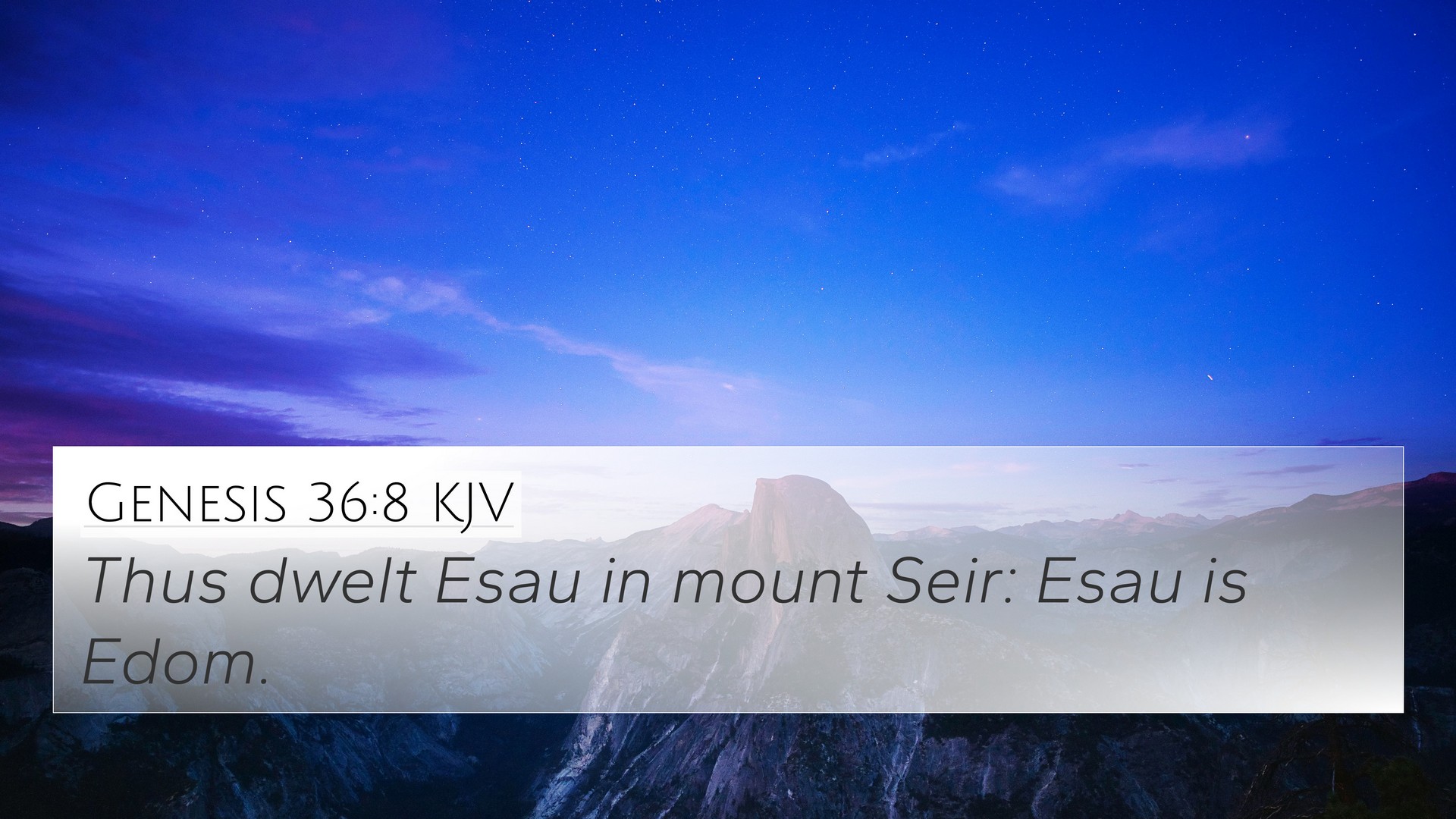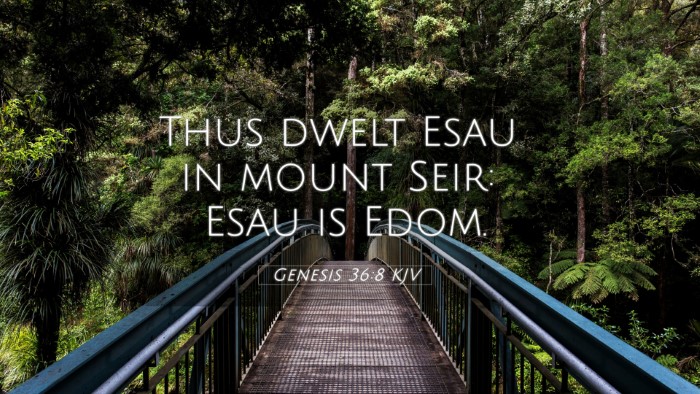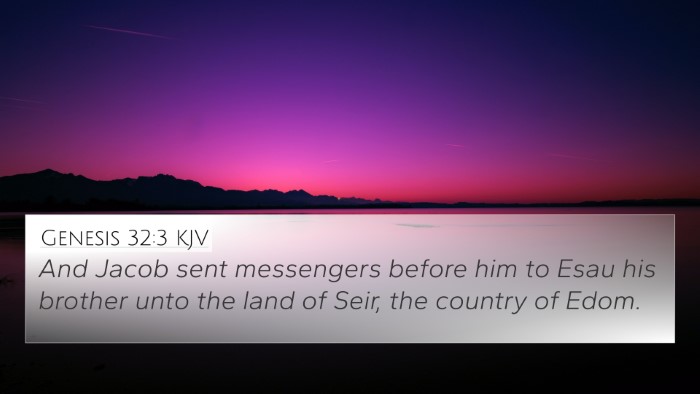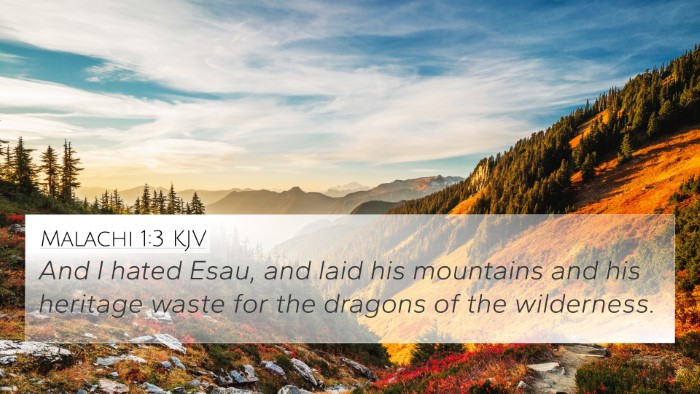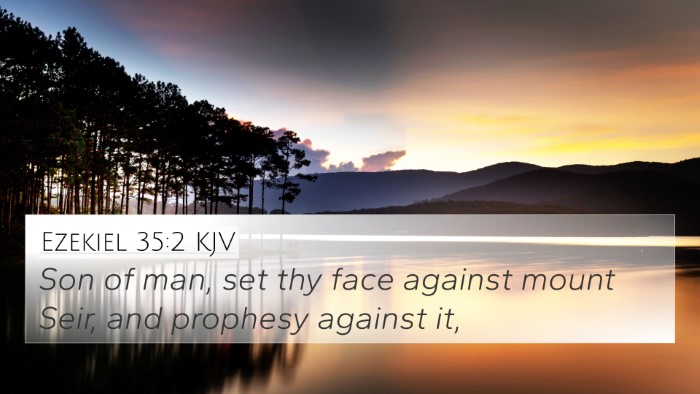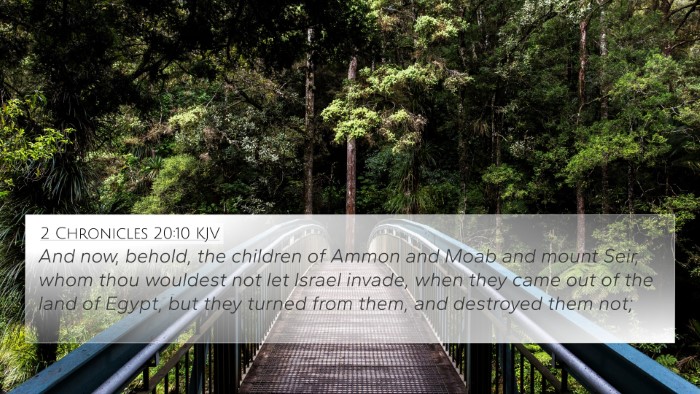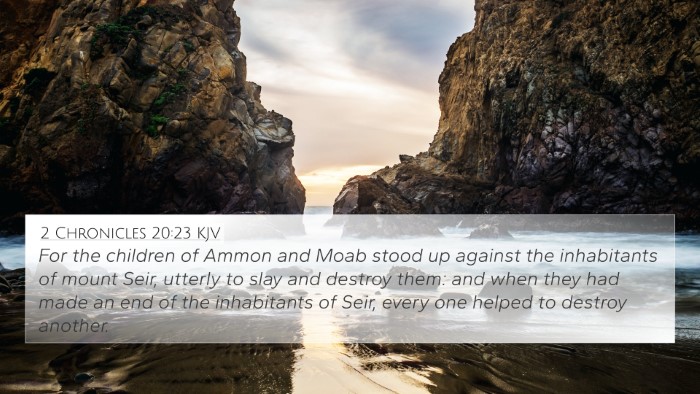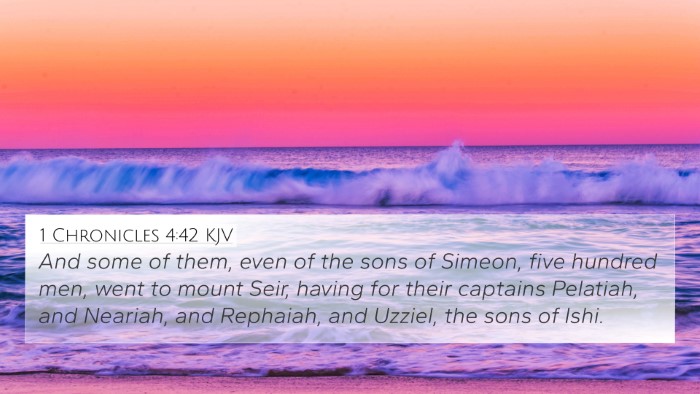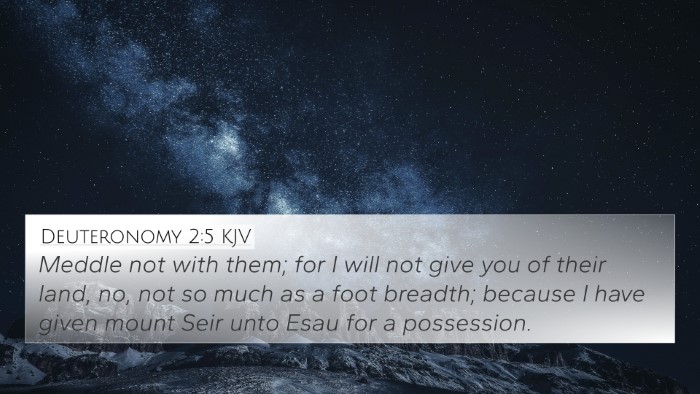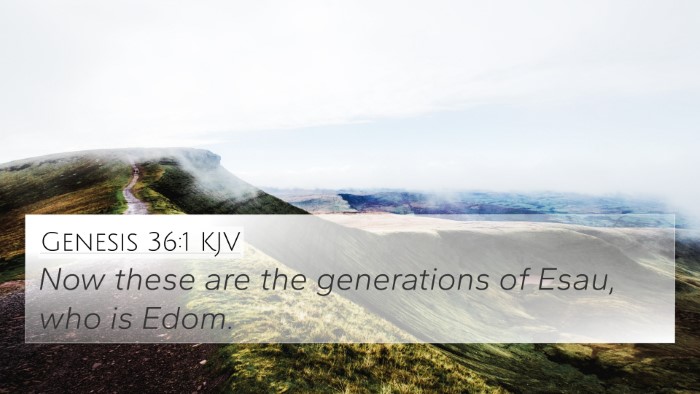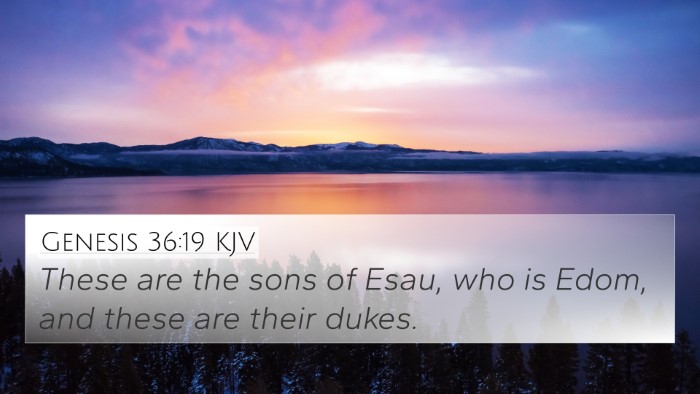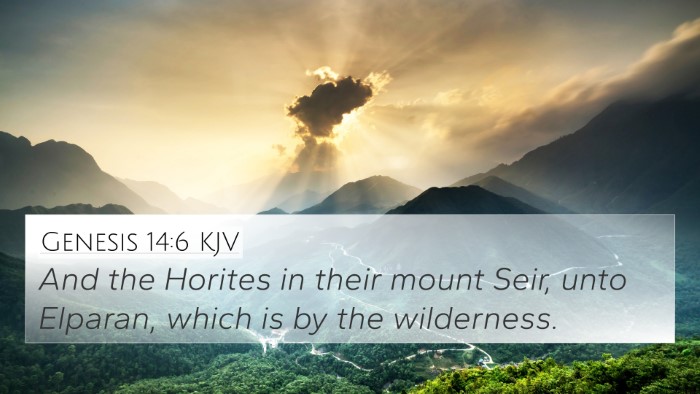Meaning and Interpretation of Genesis 36:8
Genesis 36:8: “Thus dwelt Esau in mount Seir: Esau is Edom.”
This verse marks a significant moment in the narrative of Esau, the twin brother of Jacob. The shorthand phrase "Esau is Edom" establishes the identity of Esau with the Edomite people, intertwining his lineage with the land of Seir.
Contextual Overview
In the Book of Genesis, Esau's story unfolds as a complex narrative of familial tension and divine purpose. The history of Esau is not merely a personal family story; it has broader implications for understanding the relationship between the Israelites and Edomites, subjects that are examined in various public domain commentaries.
Commentary Insights
-
Matthew Henry’s Commentary:
Henry asserts that Esau's dwelling in Seir indicates both a physical and spiritual separation from the covenant family. It emphasizes God’s providence in leading individuals to fulfill His plans, showcasing Esau as the father of a nation that diverged from Jacob's lineage.
-
Albert Barnes’ Notes on the Bible:
Barnes discusses the significance of the land of Seir being associated with Edom, which suggests a prominent identity and a place of settlement for Esau's descendants. This posits the Edomites as a distinct entity from Israel, hinting at future conflicts and the unfolding of prophetic events in biblical history.
-
Adam Clarke’s Commentary:
Clarke highlights the shift in focus from Jacob to Esau, marking a critical transition in the Genesis narrative. He elaborates on how Esau's settlement reflects God's broader plan for nations and the eventual role of Edom in biblical history.
Thematic Connections
The verse has thematic relevance concerning lineage and identity, as it correlates with several other biblical texts:
- Cross-reference 1: Genesis 25:30 - Here, Esau's identity as Edom is reinforced when he sells his birthright for bread and lentils, symbolizing a significant sacrifice of what is sacred for immediate gratification.
- Cross-reference 2: Deuteronomy 2:4-5 - These verses emphasize how Israel was not to disturb Edom, indicating the significance of Esau's descendants even within the context of Israel’s journey.
- Cross-reference 3: Obadiah 1:10 - This prophetic text discusses the fate of Edom, encapsulating the ongoing tension between the Edomites and the Israelites.
- Cross-reference 4: Malachi 1:2-3 - In these verses, God declares His love for Jacob and hatred for Esau, further illustrating the divine election and its implications for the nations.
- Cross-reference 5: Romans 9:13 - Paul refers back to Malachi, reinforcing the theme of divine choice and election as it pertains to God's sovereign plan.
- Cross-reference 6: Hebrews 12:16-17 - Here, Esau is identified with ungodliness, highlighting the moral implications of his actions in contrast to Jacob.
- Cross-reference 7: Genesis 36:26 - This verse lists the sons of Esau, further detailing the lineage and the establishment of Edom as a significant nation.
Conclusion
Genesis 36:8 serves as a crucial verse in understanding the distinct paths of Jacob and Esau, leading to significant theological and historical considerations about their descendants. The verse points to God's sovereignty in establishing nations and identities, while also revealing a deeper moral and spiritual dichotomy between the two brothers. Through exploration and cross-referencing with other scriptures, we see how Genesis 36:8 is not an isolated verse, but part of a broader narrative that interlaces with themes of election, lineage, and identity in God’s redemptive plan.
Further Reflections on Cross-Referencing
For those seeking a deeper understanding of scripture, employing tools like a Bible concordance, cross-reference Bible study methods, and a Bible cross-reference guide can significantly enhance one’s study. The comprehensive Bible cross-reference materials allow learners to identify connections between Bible verses, facilitating a profound grasp of how verses relate to one another both thematically and narratively.
Prayer and Study
As we meditate on the implications of Genesis 36:8, let us also approach God in prayer, seeking His wisdom in understanding His Word, for the scriptural cross-referencing reveals not just the history of Israel and Edom, but the larger picture of God’s ongoing story with humanity.
